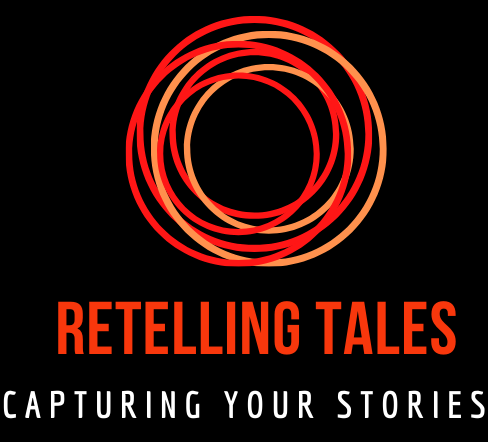We all share stories. According to Christine Hennebury, sharing stories is fundamental to how we exist as humans.
Who is the family storyteller in your family?
Is it you?
I am passionate about stories. I listened to my family’s stories when I was very small. When overnight at my Mama’s (Jessie’s) house we’d share her bed. I’d always ask, ‘what did you do when you were a little girl like me?’
When she got to the hall, Jessie asked the cloak attendant to cut off the shriveled crepe. Perhaps it was my grandmother who started the trend for shorter dresses in the 1920s?
All sorts of wonderful tales would follow. I loved hearing my grandma tell stories. I’d often ask for my favourite. That’s the one where Jessie rode her pushbike to a dance: her crepe dress got wet and caught in the bike chain.

Stories help us to make connections and build relationships. We share stories at work, at sport, at play.
When our parents and grandparents talk about their lives, it helps to give meaning to those lives, and sometimes a way to deal with unresolved events from the past. It is also a wonderful way for children to learn about their history, their family culture.
An innovative study by Duke and Fivish called “Do you know?” showed that higher self-esteem and a stronger sense of control over their lives was evident when children knew about their history. Stories are important for children as well as the older members of the family.
And they don’t have to always be about the good times: research shows that children can learn a lot from listening about trials and tribulations, as long the stories are told in a sensitive way, as long as something positive can be learned.
All through human history, tradition, culture, and memories have been passed from one generation to the next through stories. It helps us to understand that we are not alone, but part of a much larger something.
In her blog about the importance of family stories, Mary Quigley suggests that there are 3 types. The first type is directive and helps to guide behaviour. Stories of regret may be directive – learn from mistakes.
Another type of family story is ‘social bonding’ such as memories of shared experiences.
The next type is ‘personal identity’ which may help to understand your kind of family, where you come from.
Some of the questions included in the study mentioned above were:
Do you know where your grandparents grew up?
Do you know where your parents met?
Do you know if something really terrible ever happened in your family?
What do you know? Do you know your family stories? Would you like to know more?
Do you wish you’d asked your grandparents or parents more about what they did when they were kids? Or?
Please comment below. Let’s share our stories. Let’s keep our stories alive.
